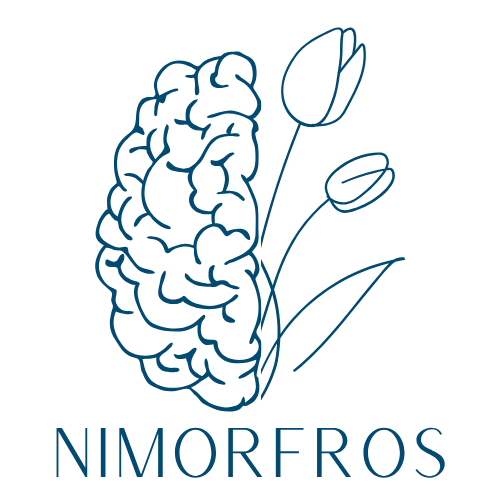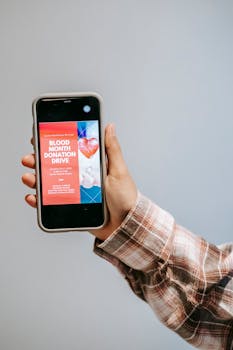Annunci
Social media has woven itself into the fabric of our daily lives, shaping how we communicate, share information, and relate to one another. Its influence spans various areas of life, including health. Understanding this impact is crucial as individuals and society navigate the complexities brought forth by digital engagement.
The relationship between social media and health is multifaceted, impacting both physical and mental well-being. By fostering community and connection, social media can enhance health awareness and support systems. However, it can also contribute to misinformation, anxiety, and unhealthy behaviors.
This article explores the various ways social media affects health, emphasizing its dual nature. We will delve into the positive impacts, negative consequences, and strategies for responsible engagement, offering a comprehensive examination of this vital subject.
The Positive Effects of Social Media on Health
Social media platforms serve as a significant source of health information. They allow individuals to share personal experiences and connect over shared health struggles, which can be therapeutic.
Access to diverse communities online empowers users to seek and provide support. Communities can help individuals cope with various health challenges, fostering resilience and emotional well-being.
Annunci
Moreover, social media can promote healthy behaviors. Campaigns that encourage exercise, healthy eating, and mental health awareness thrive on platforms like Instagram and Facebook.
Furthermore, these platforms can bridge gaps in healthcare access. Telehealth initiatives and support groups can reach individuals in remote areas, expanding treatment options.
By raising awareness about health issues, social media plays a role in public health campaigns. This awareness can mobilize communities to participate in health initiatives that improve overall well-being.
Annunci
The Negative Aspects of Social Media’s Impact on Health
While there are benefits, social media also has a darker side. Misinformation about health can spread rapidly, leading to detrimental health choices and increased anxiety.
The influence of unrealistic health standards often leads to body image issues. Constant exposure to edited images can create feelings of inadequacy, especially among young users.
Social media platforms can foster addiction-like behaviors. The endless scroll and notifications can distract users from real-life interactions, contributing to feelings of loneliness and isolation.
Moreover, social media can amplify mental health problems. Platforms sometimes become echo chambers that reinforce negative thoughts and anxiety, particularly among vulnerable individuals.
Finally, the pressure to remain engaged and relevant can lead to burnout. Overexposure can stress users, detracting from their overall health and wellness.
Social Media and Mental Health Awareness
Social media has emerged as a vital tool for mental health advocacy. Individuals can share their stories and experiences, fostering awareness around various mental health issues.
Campaigns and hashtags related to mental health can normalize conversations. This visibility encourages people to seek help and condition society to understand mental health better.
Additionally, mental health professionals utilize social media to distribute resources and information. Engaging content like infographics and videos can break down complex topics into digestible formats.
Support groups online provide essential resources for those seeking help. Social media creates a space where individuals can connect with those facing similar struggles, promoting healing.
Ultimately, social media can act as a bridge to mental health support. It can connect individuals with professionals and services that they otherwise might not access.
The Role of Influencers in Health Discourse
Health influencers play a prominent role on social media. Their ability to reach vast audiences makes them powerful entities in shaping health narratives and behaviors.
Influencers can promote healthy lifestyles effectively, translating complex health information into relatable content. This accessibility often resonates well with audiences, motivating healthier choices.
However, influencer marketing can also mislead consumers. Without proper regulation, some influencers may promote products or lifestyles that lack scientific backing, posing risks to followers.
Education around health-related influencer content is essential. Followers should develop critical thinking skills to distinguish credible sources from misleading information.
Ultimately, influencers have a choice to prioritize transparency and accuracy in their messaging. This responsibility can help foster a healthier online environment.
The Role of Social Media in Public Health Campaigns
Social media systems are invaluable for public health campaigns. They allow health organizations to reach vast audiences quickly, disseminating vital information on pressing health issues.
Campaigns can leverage visuals and storytelling to effectively communicate messages. Engaging content often compels users to share, amplifying reach and impact exponentially.
During public health crises, such as the COVID-19 pandemic, social media became crucial. Real-time updates, safety guidelines, and health tips spread rapidly through these platforms.
Moreover, social media channels can foster community engagement. Users are encouraged to participate in health initiatives, furthering common goals in health awareness and education.
In conclusion, the integration of social media in public health campaigns showcases its potential when used responsibly. The reach and engagement can significantly improve public health outcomes.
Strategies for Responsible Social Media Engagement
Practicing responsible engagement on social media is vital for preserving health. Users should critically evaluate the information shared and prioritize accurate sources.
Consider diversifying the sources of health information consumed. Engaging with trusted organizations and professionals can help maintain a balanced perspective on health issues.
Setting boundaries for social media use can support mental well-being. Designating specific times for online engagement helps prevent distractions that could impact real-life interactions.
Encourage open discussions about health on social media. Healthy conversations about experiences and challenges can normalize issues while providing support for others.
Ultimately, being a conscious user helps create a positive online space. Empowering oneself and others can facilitate meaningful support and foster healthier communities.
Conclusione
Social media holds immense power over health, manifesting both positive and negative influences. Understanding this impact is essential to navigating the digital landscape responsibly.
By embracing the benefits and mitigating the downsides, individuals can harness social media to enhance their health and well-being. Awareness and education are key.
As communities evolve in digital interactions, cultivating healthy online habits will foster supportive and informed environments. Ultimately, the outcome lies in collective responsibility.
Through informed engagement and awareness, users can drive positive change in their lives and communities. The future of health engagement promises a more integrated approach with social media.
As we move forward, let’s continue to explore innovative ways to use social media for health enhancement and awareness, ensuring a balanced perspective for all.



